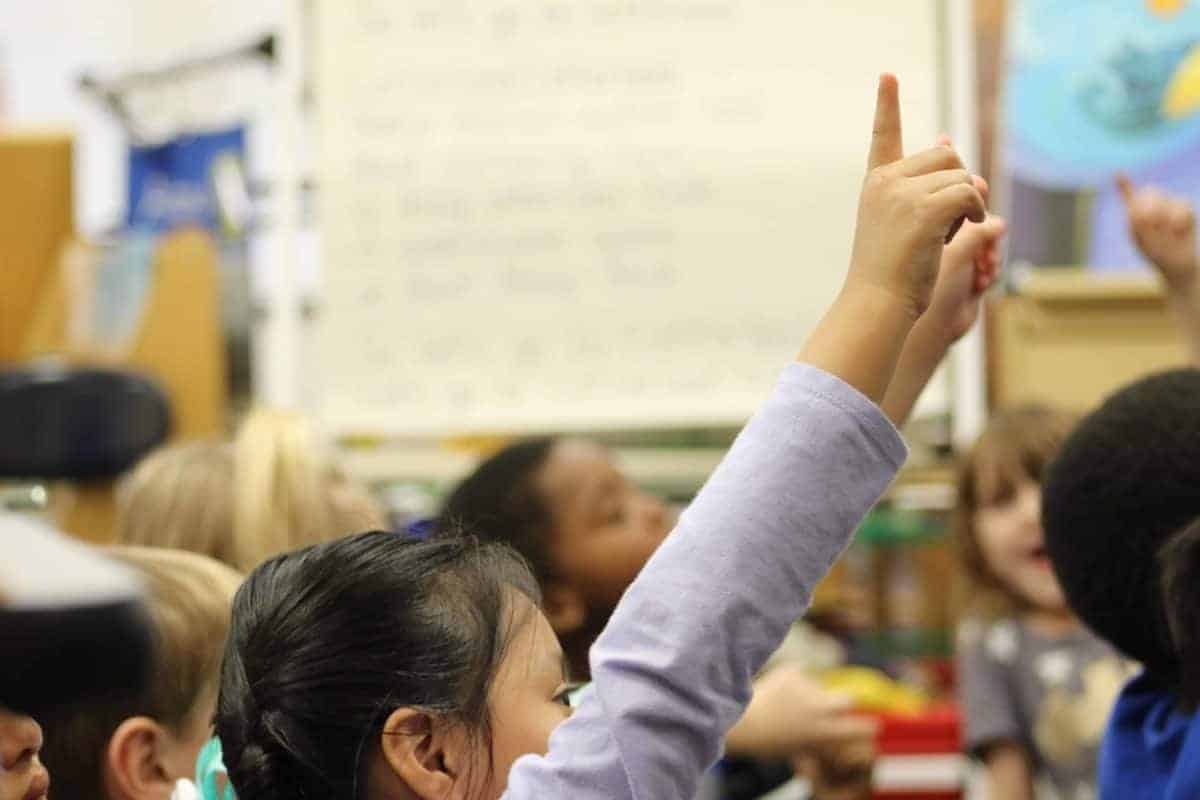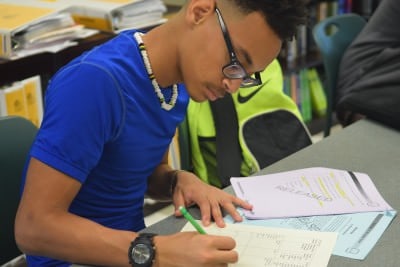

Innovation often starts with a disruptive question.
What is the purpose of education now, what will it be in 2040, who gets to decide, and how do we get from here to there?
In Singapore – a country many look to as the best in the world when it comes to education – they believe schools should and will be designed to encourage students to be the creators of knowledge.
The creators of knowledge instead of the consumers of knowledge.
A new learning framework is defining “the new normal” for education in North Carolina, across the United States, and around the world. OECD (the Organisation for Economic Co-operation and Development) worked with a lot of smart people to figure out how to help states and countries transform their educational systems so students have “the knowledge, skills, attitudes and values that learners need to fulfill their potential and contribute to the well-being of their communities and the planet.”
Student agency in learning will matter more and more.
The earliest adopter of this learning framework in North Carolina is the North-Phillips School of Innovation in the Edgecombe County Public Schools, where 30 students were given the opportunity to redesign what school should look like. Now scaled to three grades, this pilot has become an incubator of hope for many across North Carolina who now see that this can happen in any classroom in any school in any community without waiting for permission.
Innovations take place in a complex ecosystem of politics and public policy. When we think about prompting this system change in education, three resolutions are going to be critical: good governance, alignment towards attainment from birth to career, and our willingness to work together.
Ask yourself, “who is in charge when it comes to education?” We have the governor, the Governor’s Education Cabinet, the legislature, the UNC system with 17 campuses, the community college system with 58 campuses, 36 more independent colleges and universities, the State Board of Education, the Superintendent of Public Instruction, the school boards and superintendents in 115 school districts, 198 charter schools with 12 more on the way, and 100 county commissions that fund local education.
When it is not clear who is in charge, it is not clear who is accountable.
System coherence starts with governance, but there needs to be alignment towards attainment across the birth to career continuum.
North Carolina was one of just five states without an attainment goal, but a cross-sector collaboration of leaders in education, business, and government came together and now by 2030, 2 million North Carolinians will have a high-quality postsecondary degree or credential.
Getting to our attainment goal starts with itty bitty babies and early childhood development and continues through ameliorating third grade fade and then keeping our students in school when they could drop out so that they graduate from high school and either go to and through college or land in a job where they can earn a living wage and support a family.
While there is no federal right to education, courts have interpreted our state constitution to require access for all students to a sound, basic education.
Recently, an independent consultant found that without that “the future of the state hangs in the balance.”
If we are going to address the challenges we face in providing a sound, basic education as our state constitution requires or the 21st century education our economy of tomorrow requires, we are going to have to work together better.
Jeremy Anderson, president of Education Commission of the States, says in states where leaps and bounds are being made, leaders have found ways to work across difference. “It’s a simple litmus test,” he says. “Can the people who can move this policy meet for coffee even if they disagree and talk through some of these differences?”
We need future-forward solutions for all of our students, all of our teachers, in all of our schools, in all of our colleges and universities, and that means in our 23 counties that voted 70% or more for President Trump, in our urban blue crescent, and in the rest of our very purple counties.
This — our students, our state, our future — is an all of us.
Answer the questions, North Carolina. Make the resolutions around good governance, aligning towards attainment from birth to career, and working together across all the lines of difference, and you will get to the new normal where innovation takes hold and students become the architects not just of their own learning but of the future itself.


